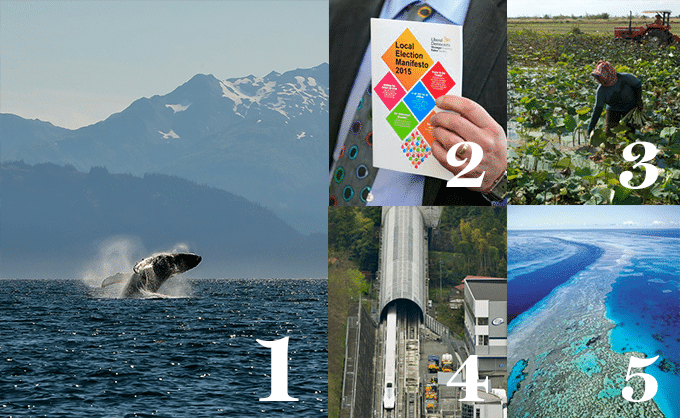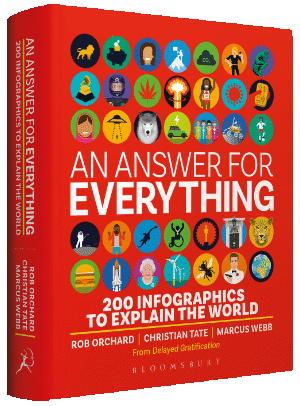Five things we learned last month

Photos: Jordan Confino, Jonathan Brady/PA Wire/Press Association Images, Heng Sinith, Junko Ozaki (both AP/Press Association Images), AP/AP/Press Association Images
DG#19 has gone to press and – while we wait for the ink to dry – we’ve rounded up some of our favourite facts learned while putting the issue together.
1) On 30th March 1867, US Secretary of State William H. Seward agreed to buy Alaska from Russia for $7.2 million. Despite the cost working out to just 2 cents per acre, Seward’s purchase was controversial: critics refered to the 586,412 square mile territory as “Seward’s ice box” and president Andrew Johnson’s “polar bear garden”.
2) In the election manifestos of the UK’s five main parties, the word ‘work’ was mentioned almost seven times as often as the word ‘immigration’, and almost eight times as often as the word ‘environment’.
3) Half of Cambodia’s countryside has been bought up by private companies in recent years. According to Christian Aid, an area the size of London is sold or leased to big investors every six days, which often means the relocation of local communities who depend on the land for their livelihoods.
4) The invention of the superconducting magnetic levitation (maglev) train was very almost stopped in its tracks when one of its inventors, James Powell, was shot in the chest a few months before he co-published a paper on the idea in 1966. Powell was shot while at work at the Brookhaven National Laboratory in Long Island by his colleague Michael Maresca, who was suffering from mental health issues.
5) The World Wildlife Fund recently valued the oceans’ assets at $24 trillion. Its April 2015 report claims the oceans contribute $2.5 trillion to the world economy each year, with the Great Barrier Reef alone adding an annual $5.7 billion.
Slow Journalism in your inbox, plus infographics, offers and more: sign up for the free DG newsletter. Sign me up
Thanks for signing up.





